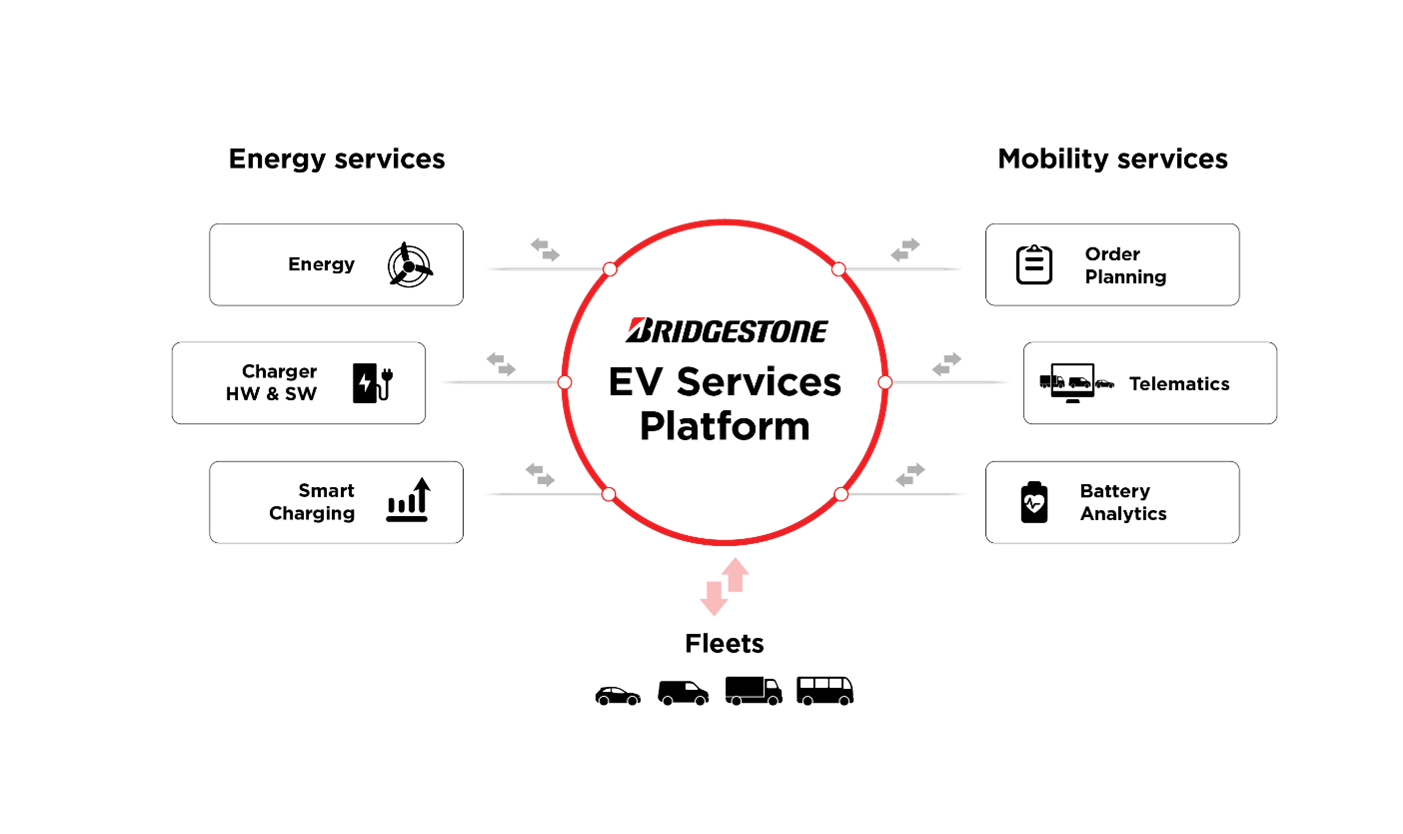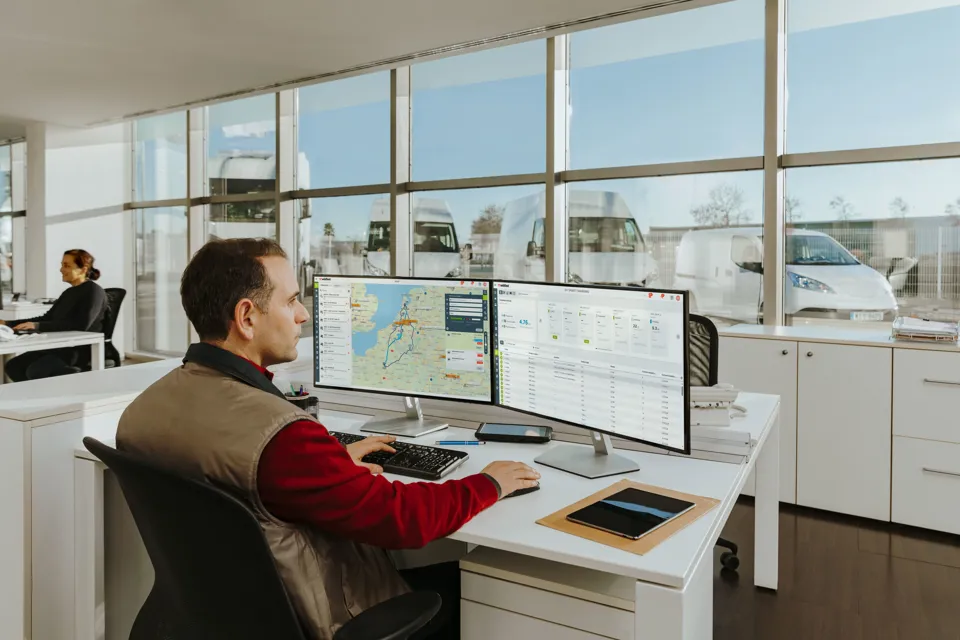A new platform connecting fleets with a network of service providers to optimise electric vehicle (EV) operations has been launched at the Consumer Electronics Show (CES) in Las Vegas.
Bridgestone Mobility Solutions, which includes its fleet management solution Webfleet, says that its EV Services Platform will enable fleets to access a wide range of EV services easier, faster and with a lower cost of integration, accelerating electrification and optimising EV operations.
The platform creates a connection between these service providers based on fleet and energy data provided by Webfleet.
Bridgestone explained that the platform organises its services into six key pillars, which aims to make it easy for fleets to choose the ideal combination for their specific EV goals.
These include, a charging hardware and software pillar, with experts able to provide charging infrastructure according to a fleet’s needs, as well as monitoring and analysing the performance of chargers.
The smart charging pillar aims to reduce costs by avoiding peak loads and high energy tariffs, and lower emissions by utilising renewable energy. In terms of energy management, fleets will also receive guidance on energy infrastructure and efficient energy management for your vehicles and buildings.
A battery analytics pillar aims to ensure fleet safety and reliability with alerts for battery issues, while improving the residual values of vehicles with reports on battery health.
A planning pillar, meanwhile, will help fleets plan orders and consider energy, charging, battery, and route constraints.
Finally, a fleet management pillar aims to enable fleets to run EV operations reliably and optimally based on real-time vehicle data and insights on driver behaviour and energy consumption.

“As businesses across the world step up to cut carbon emissions, electrification is top of mind for many fleets,” said Taco Olthoff, EV programme director at Bridgestone Mobility Solutions. “But the route to electrification comes with challenges – high investments, maintaining a reliable operation and optimising your business to increase range and cut costs.
“These issues can only be solved when the energy and mobility industry collaborate.”
Olthoff explained that “seamless data exchange” is the missing link, which unlocks the full value that energy and mobility service providers can deliver by integrating their systems much closer.
“This is why our EV Services Platform is such a game changer,” he continued. “A fleet manager can, for example, get range information to allocate the most suitable vehicle to get a specific job done.
“This trip information can then be shared with their charging management provider to select which vehicle should be charged and when based on the required battery level and trip schedule.”
Fleet customers will be able to share data between any of the connected EV service providers to help streamline electric fleet operations.
Users will always stay in full control of their own data, deciding which data will be shared, when and how, said Bridgestone.
Some providers have already announced their commitment to integrating with the EV Services Platform this year, including Vev, CTek and TomTom.
The platform is open to other partners with the goal of offering a complete range of services to fleets in a way that is flexible to their business needs, said Bridgestone.





















Login to comment
Comments
No comments have been made yet.